Advisory Board
The Advisory Board support the scientific excellence of the EJP SOIL outputs through the participation of scientific experts, and serves as the key forum for stakeholder organisations that interact with EJP SOIL.
The Advisory Board ensures full diversity of relevant stakeholders’ perspectives and ensures the flow of information to and from EJP SOIL, benefitting from knowledge produced by other already existing initiatives on agricultural soil management and related fields, as well as ensuring that new ideas and emerging initiatives are duly considered.
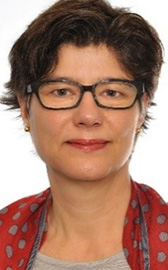
Chair: Prof. dr. Katharina Helming
Professor of sustainability assessment, Leibniz Centre for Agricultural Landscape Research (ZALF)
Brief CV
Katharina Helming is a soil scientist and agronomist. She leads the research group Impact Assessment and co-leads the research area Agricultural Landscape Systems at the Leibniz Centre for Agricultural Landscape Research (ZALF). She is professor for Sustainability Assessment at the University for Sustainable Development Eberswalde, Germany (University of applied sciences). She has 25 year experience of research on agriculture, soil conservation and sustainable landscape management in Europe, USA, China and Central Asia. Her current research is about societal aspects of soil management and sustainability assessment of land use changes. She has published more than 80 international scientific publications. She is member of the management team of the German BonaRes Centre.
Katharina has extensive experience in coordinating and participating in European research (FP6, FP7, H2020) including large collaborative projects (SENSOR, PLUREL, LUPIS, LIAISE) knowledge hubs (FACCE-MACSUR), Marie-Skłodowska-Curie ITN (CASTLE) as well as serving on review boards for European and national research programs. Because of her interdisciplinary knowledge on sustainable land management Katharina is frequently booked as an expert in global assessments and outlooks such as SCAR, JRC Foresight on Food Security, UN Global Environmental Outlook (GEO6), Foresight on Demand for the mission on soil health and food.
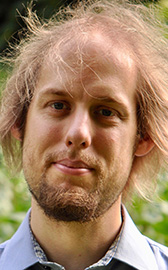
Dr. Bram Moeskops
Managing director of the European Research Institute of Organic Agriculture (FiBL Europe).
Brief CV
Bram Moeskops is the managing director of the European Research Institute of Organic Agriculture (FiBL Europe). Bram Moeskops is member of different advisory groups on EU R&I policy for food and farming. He is vice-chair of the Stakeholder Advisory Board of FACCE-JPI as well as the Advisory Board of the Fit4Food2030 project, member of the EIP-AGRI Subgroup on Innovation, and the SCAR-AKIS strategic working group. At IFOAM Organics Europe, Bram Moeskops has coordinated several Horizon 2020 projects that are key for developing the organic sector (e.g. LIVESEED promoting organic seed use and plant breeding) or that facilitate knowledge exchange (e.g. OK-Net EcoFeed on regional feed for organic monogastrics). At TP Organics, Bram Moeskops has coordinated the writing of two Strategic Research & Innovation Agendas for the organic sector. Bram has worked at IFOAM Organics Europe, the Flemish Platform for Sustainable Development, and the umbrella organisation of the Flemish North-South movement. He holds a PhD in Soil Science, a Master in Bioscience Engineering from Ghent University and a Master’s degree in International Relations and Diplomacy from Antwerp University.
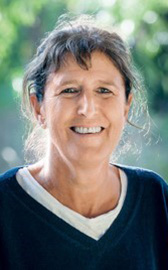
Dr. Elena Havlicek
Officer soil research, Swiss Federal Office for the Environment (FOEN)
Brief CV
Elena Havlicek works for the Federal Office of the Environment, in the Soil Section, where she is in charge, among other things, of the domain of soil biology (policies, monitoring, and implementation). She follows the international agreements and conventions related to soils (UNCCD, SDGs, European Environment Agency, Global Soil Partnership) and she chairs the European Soil Partnership, a regional partnership of the GSP. The regional soil partnerships are working in collaboration with the FAO and are contributing to the overall objectives and activities of the GSP: the ESP addresses the priorities and specificities of the European region concerning sustainable soil management and soil protection and aims to bring together the various networks and soil related activities into a common framework. Elena Havlicek is also a member of the organizing committee of the next EUROSOIL conference (2021 Geneva).
Elena Havlicek graduated in biology with a specialization in soil sciences. She has conducted and coordinated interdisciplinary research projects in fields as diverse as paleo-environments in the context of archaeological research, functioning and management of agro-sylvo-pastoral ecosystems, transformation of alluvial ecosystems and modification of social representations and uses. She has taught (and still teaches) in various universities and she has led a university continuing education programme with a multi-disciplinary approach to ecology and environmental sciences.
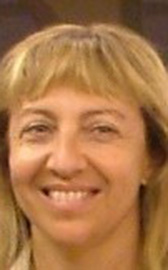
Prof. dr. Giuseppina Crescimanno
Professor of Irrigation and drainage, University of Palermo
Brief CV
Giuseppina Crescimanno is a full professor at the Department of Agricultural, Food and Forestry Sciences of the Palermo University, where she is currently teaching “Irrigation and Drainage”. She got her Ph.D. in Production Ecology and Resources Conservation at the Wageningen University (The Netherlands), by defending the thesis “Irrigation practices affecting land degradation in Sicily”. She coordinated the European Project: "An integrated approach for sustainable management of irrigated lands susceptible to degradation/desertification" and contributed to the European “Soil Thematic Strategy for soil protection” (Monitoring soil erosion in Europe and Desertification), also coordinating the Working Group: “Links with organic matter and contamination working group and secondary soil threats”.
She was appointed Head of Science at the UNESCO Office in Venice in 2007, where she worked until September 2008, also organizing and convening the Workshop “Needs and Priorities for Research and Education in Biotechnology applied to emerging Environmental Challenges in SEE Countries”. Her research activities focused on the topics: Sustainable management of water and soil in arid regions; Irrigation scheduling and strategies under saline and drought conditions; Impact of climate change on cropping systems; Soil salinization and desertification; Effects of biochar on the physical and structural properties of differently textured soils.
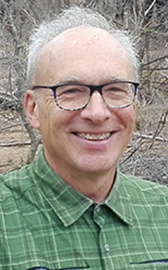
Dr. Edoardo Costantini
Agronomist specialized in soil research, former research director CREA, Italy
Brief CV
Edoardo Costantini is an agronomist with a specialization in the study of soils in their natural environment (pedology). He has over 40 years of experience in research on soil genesis, classification, mapping, and conservation in Europe, Asia, and Central and South America. He led over 30 international and national projects and published over 300 papers, monographies and books focused on Sustainable Soil Management; Soil Restoration and Conservation; Soil Mapping and Geodatabases; Land Suitability for Winegrape and other Quality Crops.
Currently, dr. Costantini cooperates with the European Innovation Partnership (EIP-AGRI) and participates to an Operational Group in Italy. He does professional work as teacher and adviser on soil and plant relationships and soil conservation for farmers, students, and professionals. Until the end of 2018, he was Research Director at the Research Centre for Agriculture and Environment of the Italian Council for Agricultural Research and Economics (CREA). In former years, he was Acting Director of the Research Centre for Agrobiology and Pedology of CREA and previously, professor of Pedology at the University of Siena. He is member of the Georgofili Academy and of the Italian National Academy of Agriculture. In 2017 he received the Norman Hudson Memorial Award of the World Association of Soil and Water Conservation (WASWAC) and in 2019 the Gerold Richter Award of the European Society for Soil Conservation (ESSC).
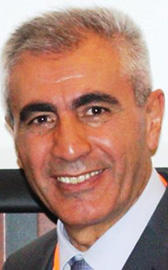
Prof. dr. Taskin Oztas
Professor of soil and water conservation, Ataturk University
Brief CV
Taskın Oztas is a soil scientist. He has experiences on soil matters at national and international scales through projects and other related activities and his expertise areas are soil and water conservation, soil modelling and sustainable soil management. His research interests are spatial variability of soil properties, soil protection and sustainable management, soil structural improvements, soil quality assessment and risk assessment for desertification and soil degradation.
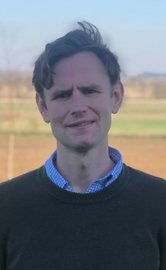
Harry Farnsworth BA Hons, MSc.
Rabobank Carbon Bank
Brief CV
Harry Farnsworth is currently part of Rabobank’s Carbon Bank team. The Carbon Bank is working across the F&A sector, trying to help clients of the bank transition the food and farming industry towards a healthier and more sustainable future. Harry advises on implementation practises and on farm measurements for the monitoring and measurement of regenerative farming and the impact regenerative systems have on natural capital and the ecosystem services that provides. Much of Harry’s work revolves around carbon and the carbon markets but also the burgeoning biodiversity and water markets. Soil health is at the heart of many of the initiatives of the Carbon Bank and the Carbon Bank is striving to transform the F&A sector into a key driver for a better future. Previous to Rabobank Harry worked on supply chain sustainability and scaling regenerative systems, across the food and fibre sector, and also worked in the food and beverage industry for many years previous to that. Harry has also been in advisory groups for the Cool Farm Alliance and the European Roundtable for Beef Sustainability, and is current involved with the partner advisory group for CA4SH.
Rabobank is a cooperative food & agri bank, with a strong presence in the world's major food & agriculture countries. We are dedicated to working together with customers, members, and partners to creating a more resilient living environment and tackling the big social challenges of the day. We focus on four themes: sustainable food production, financial health for everyone, sustainable growth for entrepreneurs, and sustainable housing for everyone.
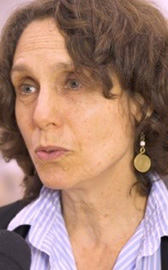
Prof. dr. Eva Lini Wollenberg
Flagship leader at CCAFS & Professor of ecological economics, University of Vermont
Brief CV
Lini Wollenberg leads the Low-Emission Development research theme for CCAFS, the CGIAR Research Program on Climate Change, Agriculture and Food Security, and is a Research Professor at the Gund Institute for Ecological Economics, University of Vermont. She previously worked with the Center for International Forestry Research (CIFOR) in Indonesia for 11 years, and the Ford Foundation.
Lini received her BS, MSc, and PhD degrees in natural resource management from the University of California, Berkeley, USA. Her expertise includes climate change mitigation, land use and natural resource governance. She has worked primarily in Asia, especially Indonesian Borneo.
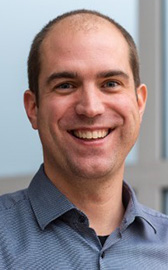
Prof. dr. Steven Van Passel
Professor of environmental economics, University of Antwerp
Vice-rector (Valorisation and development) of his university
Brief CV
Steven Van Passel is full Professor Environmental Economics at the University of Antwerp (Faculty of Business and Economics, Department of Engineering Management). Steven Van Passel is vice-rector (Valorisation and development) of his university. He has a PhD in Agricultural Economics (Ghent University) and masters in Economics and in Bioscience Engineering (KU Leuven). He developed and applied the sustainable value approach to assess farm performance and developed systemic techno-economic assessments (TEA) of clean technologies. He measured the economic impact on climate change on agriculture using a continental scale Ricardian method and studied the economic benefits of climate change adaptation in agriculture. He applied and developed both revealed and stated preferences methods to value environmental externalities in both developed and developing countries.
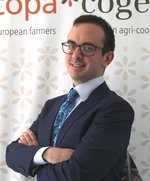
Niall Curley, M.Sc. Mgr.
Policy advisor environmental issues at COPA-COGECA, Brussels
Brief CV
Mr Niall Curley currently monitors the European policy initiatives in the areas of Biodiversity and Soil Management as the Policy Advisor on environmental issues at COPA-COGECA. COPA-COGECA is the united voice of European farmers and agri-cooperatives. Copa represents over 23 million farmers and their family members whilst Cogeca represents the interests of 22,000 agricultural cooperatives. They have almost 70 member organisations from the EU member states. Together, they ensure that EU agriculture is sustainable, innovative and competitive, guaranteeing food security to half a billion people throughout Europe.
Niall’s professional experience relates particularly to agricultural soil and water protection, and event coordination. Niall holds a double Master’s degree in European Governance from Masaryk University, Czech Republic; and Utrecht University, The Netherlands; with a thesis specialisation in the issues facing young farmers joining the industry.
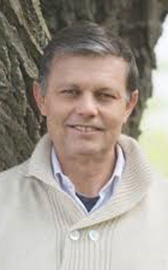
André Leu
International Director of Regeneration International
Brief CV
Andre Leu is the International Director of Regeneration International, an organization that promotes food, farming and land use systems that regenerate and stabilise climate systems, the health of the planet and people, communities, culture and local economies, democracy and peace. He has an extensive knowledge of farming and environmental systems across Asia, Europe, the Americas, Africa and Australasia from over 40 years of visiting and working in over 100 countries. Andre and his wife, Julia, have an organic tropical fruit farm in Daintree, Australia. He lectures and teaches at universities, institutions and workshops around the world. He speaks at numerous conferences, seminars, workshops as well as United Nations events on every continent. He meets with governments, industry, farmers, consumers and NGOs on the multi-functional benefits of regenerative organic agriculture. He was the President of IFOAM – Organics International, the world change agent and umbrella body for the organic sector from 2011 -2017. He is the Author of ‘Poisoning our Children’ and the ‘Myths of Safe Pesticides.’
Andre has a degree in Communications, with a double major in Video/TV Production and Socio-political Theory. He has post-graduate qualifications in adult education. He has published extensively in magazines, newspapers, journals, conference proceedings, newsletters, websites and other media, as well as doing numerous media interviews for TV, Radio and online systems.
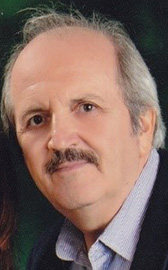
Prof. dr. Pandi Zdruli
Senior research scientist soil management, CIHEAM Bari, Italy
Member of the present Soil Mission Board
Brief CV
Pandi Zdruli is Senior Research Scientist with the International Centre for Advanced Mediterranean Agronomic Studies (CIHEAM) Mediterranean Agronomic Institute of Bari, Italy since 1999 where he teaches soil science and natural resources management. He regularly reviews papers for 24 journals, is editorial board member of other three and until July 2020 was invited 6 times by the EC to evaluate research proposals. Prior to joining the Bari Institute, he was Visiting Scientist (for two years) with the EC JRC at Ispra, Italy and Senior Fulbright Research Scholar (for five years) at the USDA Natural Resources Conservation Service in Washington, D.C.
He graduated in 1981 from the Agricultural University of Tirana in his native Albania and pursued graduate studies and research in the USA sponsored by the Fulbright Foundation. Prof. Zdruli has published 80 papers and technical reports on relevant soil management topics and has edited 12 books. He is member of IUSS, Soil, Crop and Agronomy Society of America, Italian Society of Soil Science, European Soil Partnership, European Society for Soil Conservation, Fulbright Association, member of the Sino-EU panel on Land and Soil, advisory board member of the Soil Atlas of Asia (in preparation) sponsored by JRC and FAO and many other organisations. He was Lead Author of the Land and Soil Policy chapter of the landmark Global Environmental Outlook (GEO6) report published by UNEP in 2019.
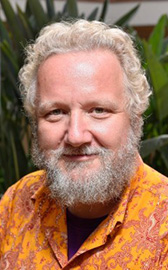
Patrick Worms
European Agroforestry Federation (EURAF)
Brief CV
Patrick Worms, a Cambridge-educated molecular geneticist, represents the world’s premier research institution devoted to the study of the roles of trees in agricultural landcapes to policy makers in Brussels and elsewhere in Europe. World Agroforestry, a CGIAR organisation, active since the 1970s, has reported on the astonishing benefits of multi-crop agriculture involving trees in thousands of peer-reviewed publications. Patrick is also President of EURAF, the European Agroforestry Federation; a Trustee and treasurer of the International Union of Agroforestry; a member of the Steering Committee of International Land Lives Peace, which works at the interface between land degration and conflicts; a Senior Fellow of the Global Evergreening Alliance and a member of several advisory boards.
Patrick has been active at the science-policy interface since the late 1980s, with a start teaching biology in the Hindu Kush. As a young European official, he pioneered a new way of using communications to deal with the environmental legacy of communism across the former Soviet Union before leaving for the private sector and engaging with the disastrous environmental legacy of China’s Great Leap forward. This effort became the first large-scale private-sector investment in tree planting for watershed remediation in that country. With three languages, a multinational family, a career spanning four continents and a wide experience in intercultural education, Patrick received bachelors and master degrees from Cambridge University.
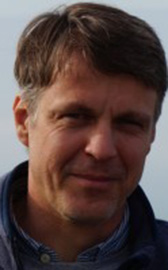
Dr. Rolf Sommer
Director, Agriculture and Land Use Change at World Wildlife Fund Germany (WWF)
Brief CV
Rolf Sommer is director of the department of Agriculture And Land Use Change at WWF in Germany. Previously he worked at CIMMYT, Mexico (postdoc), at ZEF, at ICARDA, and from 2013 to 2018 as Principal Scientist at the International Center for Tropical Agriculture (CIAT), Nairobi, Kenya.
Developing and finding sustainable management solutions addressing the complexity of achieving food and nutritional security, sustainable agricultural development, the conservation of nature, biodiversity and agro-ecosystem functioning has been at the core of Rolf’s work ever since. This includes protecting or rehabilitating soil fertility and health at field level, improving the livelihoods of smallholders through improved, competitive and eco-efficient productions systems at farm level, biodiversity, nature and landscape protection and rehabilitation at the watershed /regional level, and carbon sequestration and climate change mitigation at global scale.
Rolf holds a PhD in Agronomy and a MSc in Biology, and in the last 18 years has published over 50 peer-reviewed articles and numerous conference proceedings and online publications.
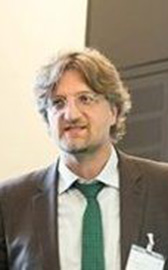
Dr. Rainer Baritz
coordinator of the European National Reference Centres Soil at the European Environment Agency (EEA)
Brief CV
The European Environment Agency (EEA) is an agency of the European Union, whose task is to provide sound, independent information on the environment. The EEA aims to support sustainable development by helping to achieve significant and measurable improvement in Europe's environment, through the provision of timely, targeted, relevant and reliable information to policymaking agents and the public.
Dr Baritz has an MSc in forest science and a PhD in ecology and soil science. He worked as a national expert at JRC Ispra on the following topics: quality control of European greenhouse inventories on land carbon pools; European forest soil monitoring (spatial soil carbon assessment); support to implement the Forest Focus Regulation and EU's greenhouse gas monitoring mechanism; IPCC author "Land use, land-use change and forestry - LULUCF". From 2004 to 2015 Baritz was Head of Unit at the Federal Institute for Geosciences and Natural in Germany. He worked at FOA in Rome on global soil information and indicator development; project design (soil information system Afghanistan, Global Soil Information System), and resource mobilization (soils and nutrition). Furthermore, Baritz was a member of Global Soil Partnership (GSP) Secretariat and lead of GSP-working group on global soil data harmonization and the Soil Data Working Group of GODAN (Global Soil Data for Agriculture and Nutrition). He joined EEA in 2017. His interests are European soil condition assessment, chemicals in soils, soils, and climate change. Dr Baritz is the coordinator of the European National Reference Centres Soil.
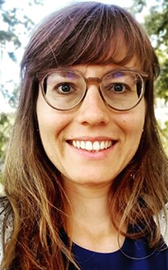
Maria Gernert
MSc; TP Organics Coordinator at IFOAM Organics Europe, Brussels
Brief CV
Maria Gernert (M.Sc.) started working for IFOAM Organics Europe, the European umbrella organisation for organic food and farming that also hosts the Secretariat of TP Organics, the European Technology Platform for Research and Innovation into Organics and Agroecology, in 2018. She has studied Nutrition, Health and Food Business (with a specialisation in nutrition and health communication) and Sustainability in Service Management and Food Industries. Her main areas of work as TP Organics Coordinator include advocacy for organic and agroecological research and innovation (shaping EU R&I policy, in particular Horizon Europe, European Partnerships, Missions, EIP-AGRI/EU CAP Network), managing the communication with the members, supporters and groups of TP Organics, organising events including Organic Innovation Days, and liaising with other organisations, ETPs and transnational networks.
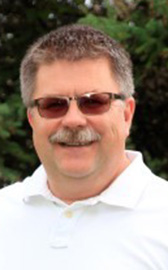
Edgars Linde, BSc
European Forum for Agricultural and Rural Advisory Services (EUFRAS)
Brief CV
Edgars Linde has 28 years of experience in field of consultancy in agriculture, farm management and rural development. Mr. Linde has a College level education in horticulture as well a Business Management degree in Latvian University of Agriculture. Working individually with farmers on their farm development plans, executing training and working with wider society on rural development issues have raised his professional capacity and proved importance of innovative approaches in rural sectors. Currently Mr. Edgars Linde has a board member position in the largest Latvian rural advisory company (Latvian Rural Advisory and Training Centre).
Additionally Edgars is head of the Latvian Rural Network Support Unit, which is responsible on national level for networking in the field of agriculture, rural development and innovation systems. Active participation in activities of European level networking organisations such as European Innovation Partnership (EIP-AGRI), European Network for Rural Development (ENRD) and regional Nordic-Baltic network provides access to wide information, knowledge and experience exchange between countries and regions.
Mr. Edgars Linde is actively promoting cooperation between European rural and agricultural advisory services. He is a board member in association “European Forum for Agricultural and Rural Advisory Services” (EUFRAS), which has been established in 2014.